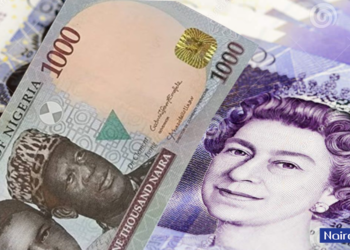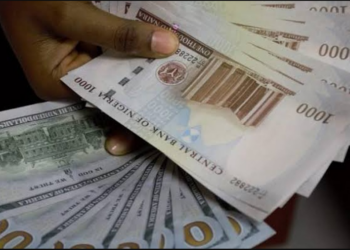Following yesterday’s report of the $4 billion Eurobond Nigeria raised, which was dubbed one of the biggest financial trades to come out of Africa in 2021, Naira appreciated marginally at both the black market and the official window.
On Wednesday, the naira gained 0.02% versus the dollar, closing at N413.18/$1, up from N413.28/$1 on Tuesday, September 21, 2021. Between Monday and Wednesday, the currency rate has averaged N413.38/$1.
The daily foreign exchange market turnover increased by 14.49% to $229.72 million on Wednesday, up from $200.65 million on Tuesday.
As a result, the dollar was quoted at N413.18 after trade on Wednesday, up from N413.28 on Tuesday, marking a 0.02 per cent increase, according to FMDQ statistics.
Similarly, the parallel market exchange rate appreciated to N572/$1 on Wednesday, up from N575/$1 the day before, according to data gathered by Nairametrics from licensed BDC operators in Lagos.
This progress comes after Nigeria had raised the sum of $4 billion through Eurobonds which were issued in three tranches.
According to the DMO, the Order Book peaked at $12.2 billion which enabled the FGN to raise $1 billion more than the $3 billion it initially announced.
The long tenors of the Eurobonds and the spread across different maturities are well aligned with Nigeria’s Debt Management Strategy, 2020 – 2023.
The mobilization of $4 billion through Eurobonds, which was part of the New External Borrowing in the 2021 Appropriation Act, provides a considerable amount of capital to finance projects in the Act, thereby helping the implementation of the Act, according to the DMO.
Although, some analysts believe that the marginal gains of the Naira were caused by the FG’s success in the bond market. Others hold that the gains are too small to strengthen the Naira in the long run.
What the expert is saying
Dumebi Udegbunam, Fixed Income trader at United Bank for Africa (UBA) postulated that ”the appreciation we are currently witnessing is based on sentiments.”
He also affirmed that there is a growing appetite for Nigerian debt saying, “The Euro bond auction showed an exceptional performance with it being oversubscribed by 400% allowing the DMO raise an extra $1 billion. This simply shows that market participants especially foreign investors are optimistic of the growth outlook and investment fundamentals of Nigeria.”
He pointed out the need for the government to tread carefully when accumulating debt saying, “Despite the impressive performance, the government needs to be very cautious of its debts servicing and also debt sustainability. To avoid creating a debt trap scenario despite having positive fundamentals.”















